Best Tourney Seeds Ever, 16-1
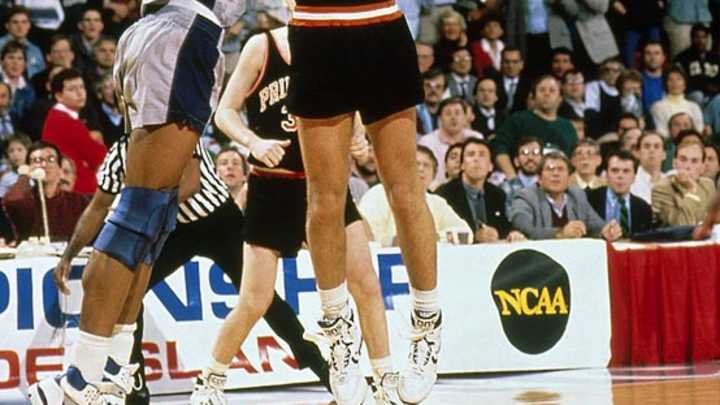
Best Tourney Seeds Ever, 16-1
Princeton

By almost eliminating top seed Georgetown in a first-round tournament game, Princeton made sure Cinderella would always get invited to the ball. Down 50-49, Princeton's Kit Mueller took the inbounds pass with one tick remained on the clock, but a game-saving block by Alonzo Mourning, who had seven blocks in the game, sealed a victory for the Hoyas.
Florida Gulf Coast
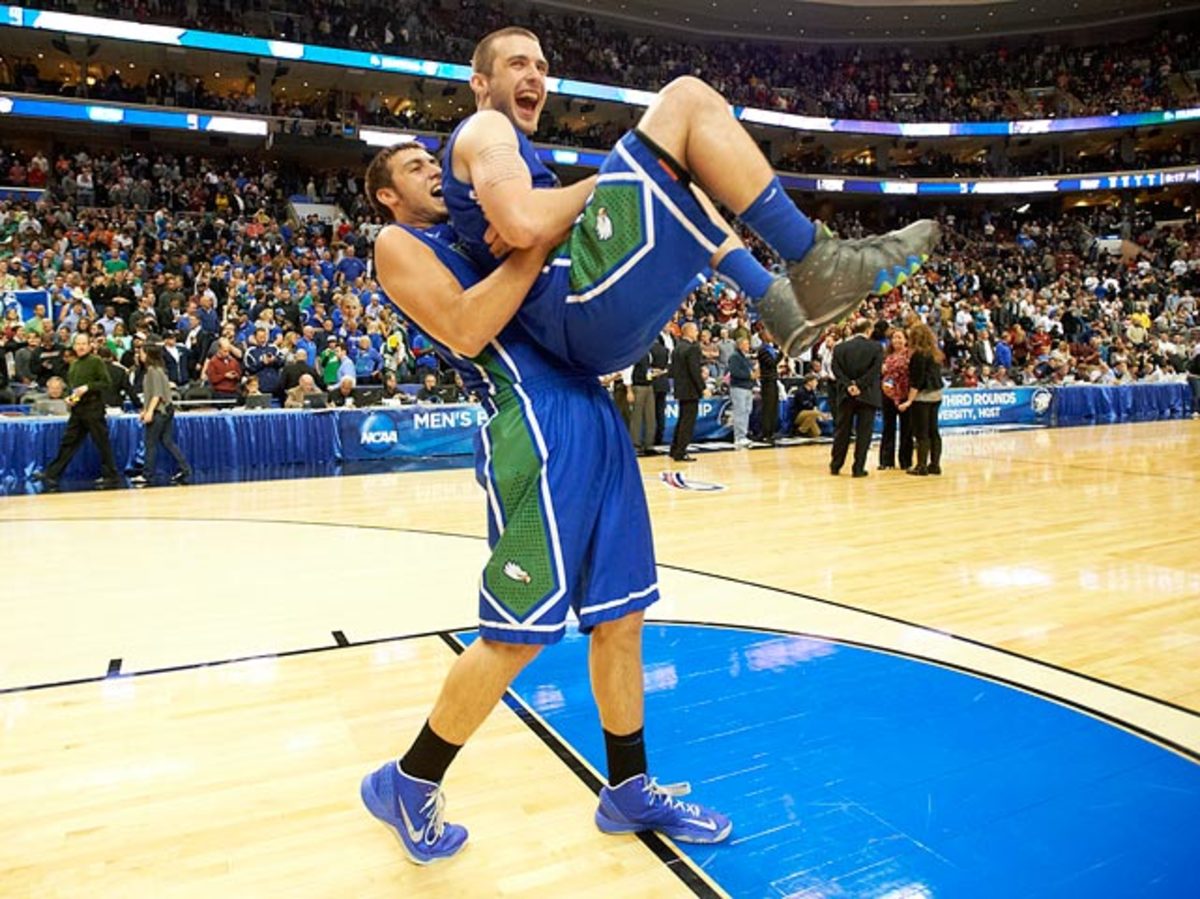
It's not just that the Eagles beat No. 2 seed Georgetown and No. 7 San Diego State. It's how they did it. Sophomore point guard Brett Comer (right) dished 31 assists in FGCU's three-game run, many of which ended with monstrous crowd-pleasing slams by Chase Fieler (left). The magical run would end against Florida in the regional semis, but not before Dunk City had become a national name.
Cleveland State
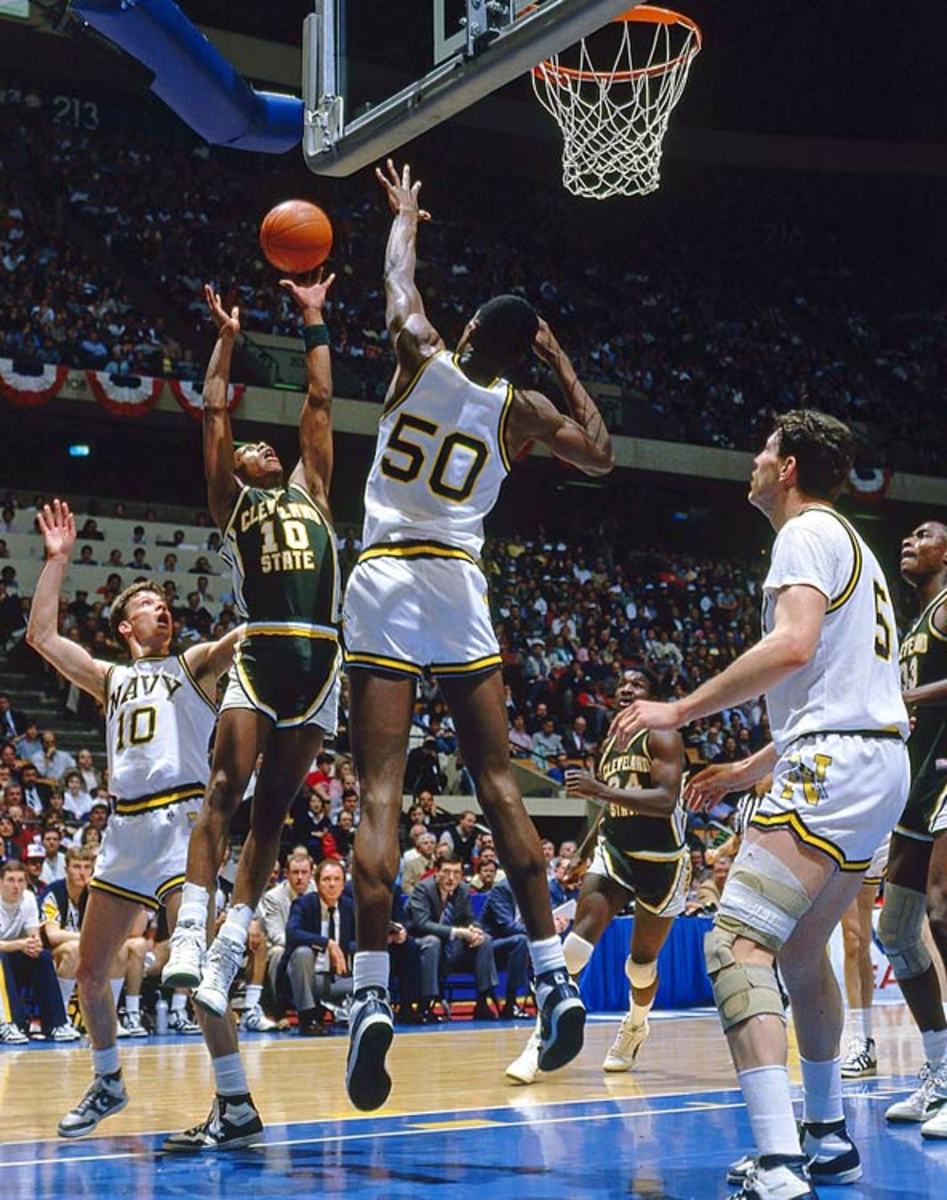
The Vikings' Run 'n' Stun style made quite an impression on the No. 3-seed Indiana, who lost 83-79 in the first round. Led by freshman point guard Ken (Mouse) McFadden, the Vikings defeated Saint Joseph's and then came within a point of beating David Robinson and Navy.
Valparaiso
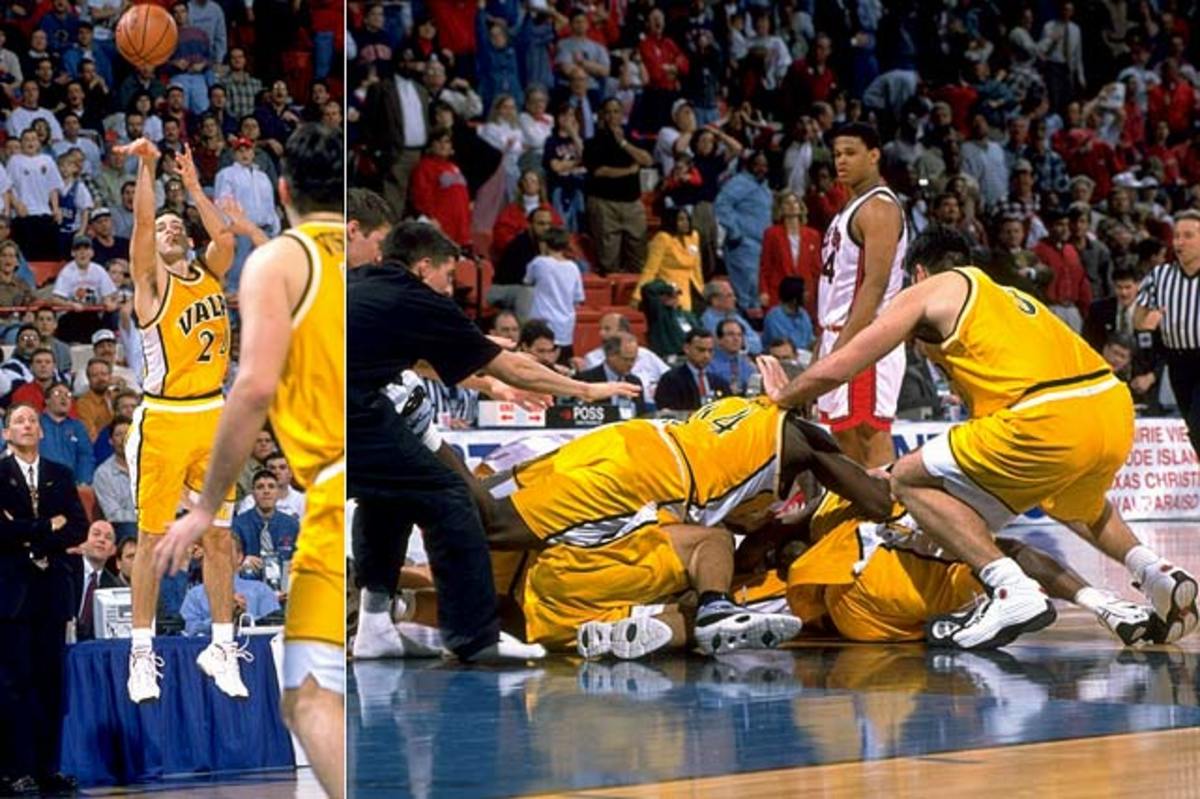
The moment has a permanent place in every Big Dance highlight reel: With 2.5 seconds to play an opening-round game against No. 4 Ole Miss, Jamie Sykes threw a 55-foot inbounds pass to Bill Jenkins, who tapped it to Bryce Drew (left) for the leaning three-pointer that upset the Rebels 70-69.
Wyoming
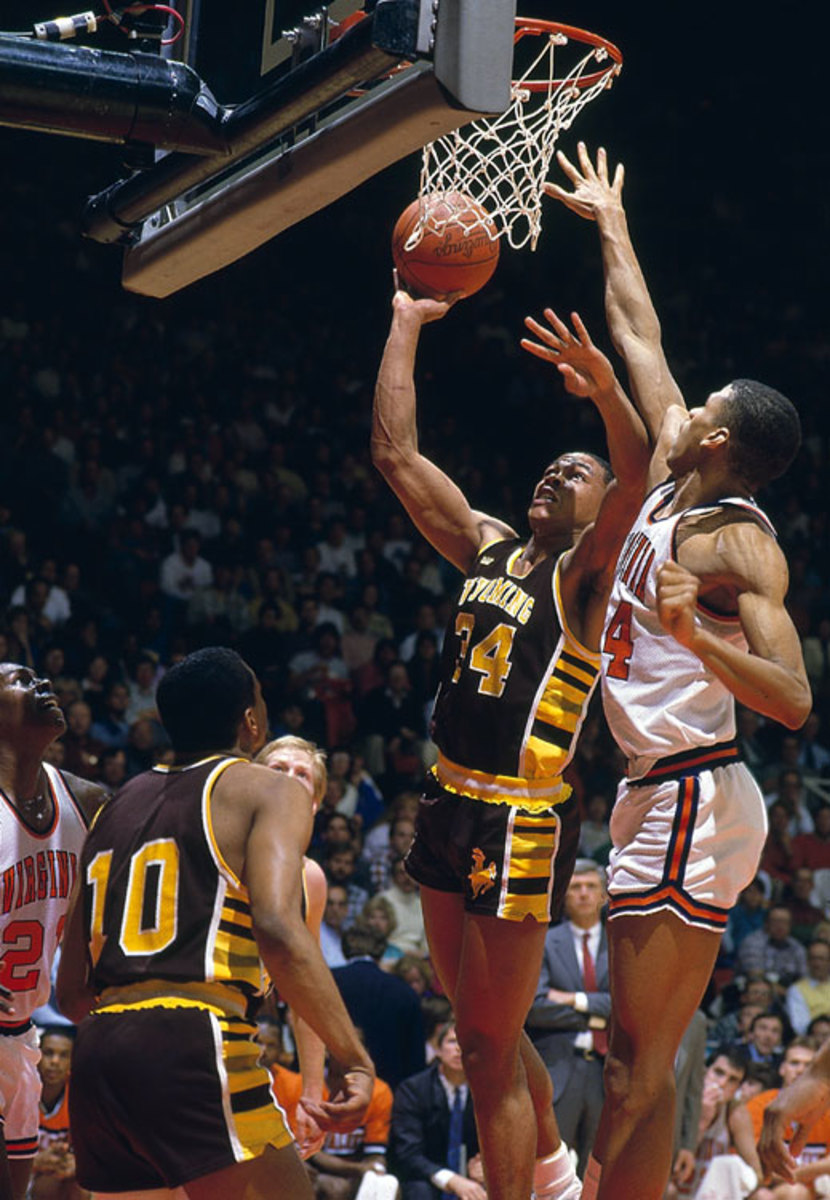
Fennis Dembo dropped 41 on Reggie Miller and fourth-seeded UCLA in the second round, stunning the Bruins 78-68. This win came just days after Dembo led the Cowboys to an upset over No. 5 seed Virginia. Wyoming's run would end in the Sweet 16, but Dembo's legend, for both his name and his game, lives on in Laramie.
George Mason
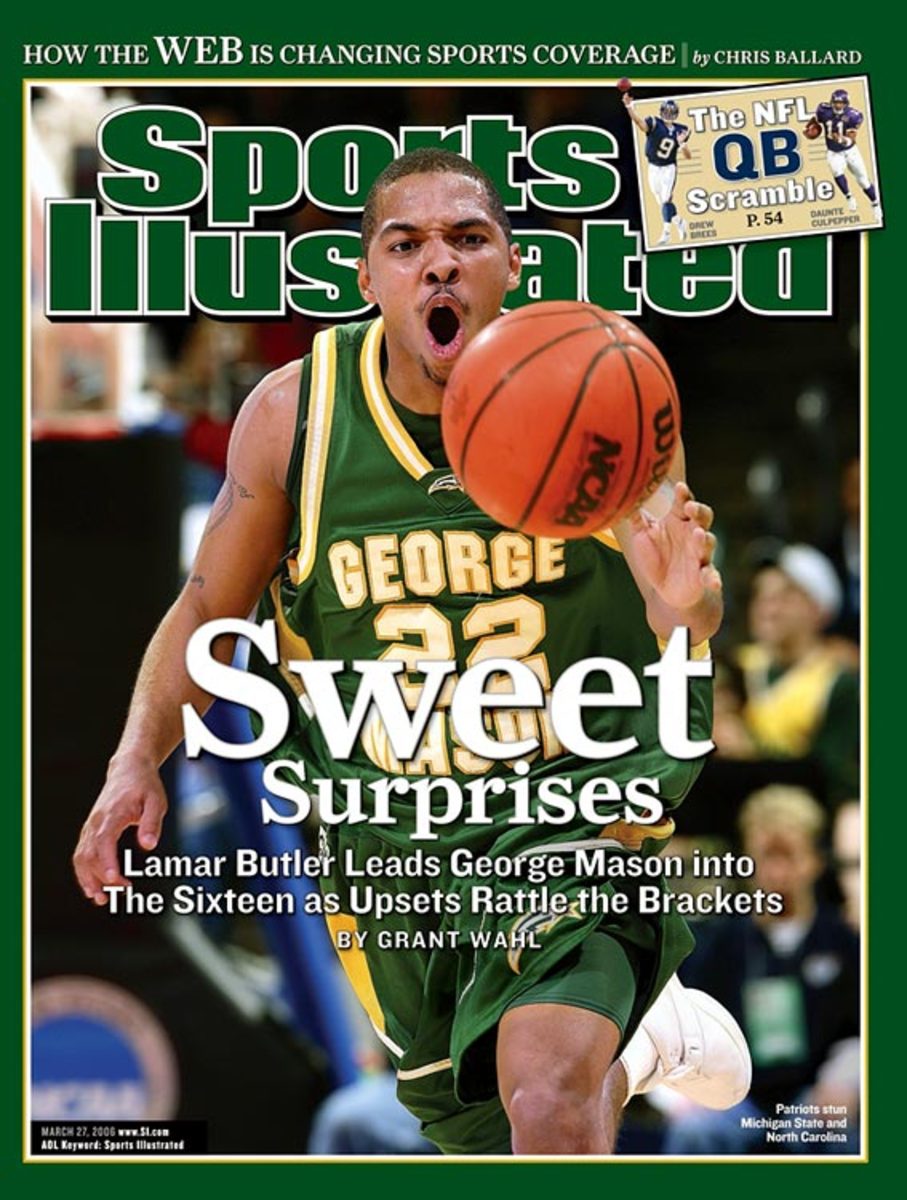
Wins over Michigan State and North Carolina proved the Patriots belonged in the field, and the 86-84 regional final win over the Huskies was one for the ages. Sophomore Folarin Campbell and senior Lamar Butler combined for five three-pointers in a 6:02 span to force overtime.
Gonzaga
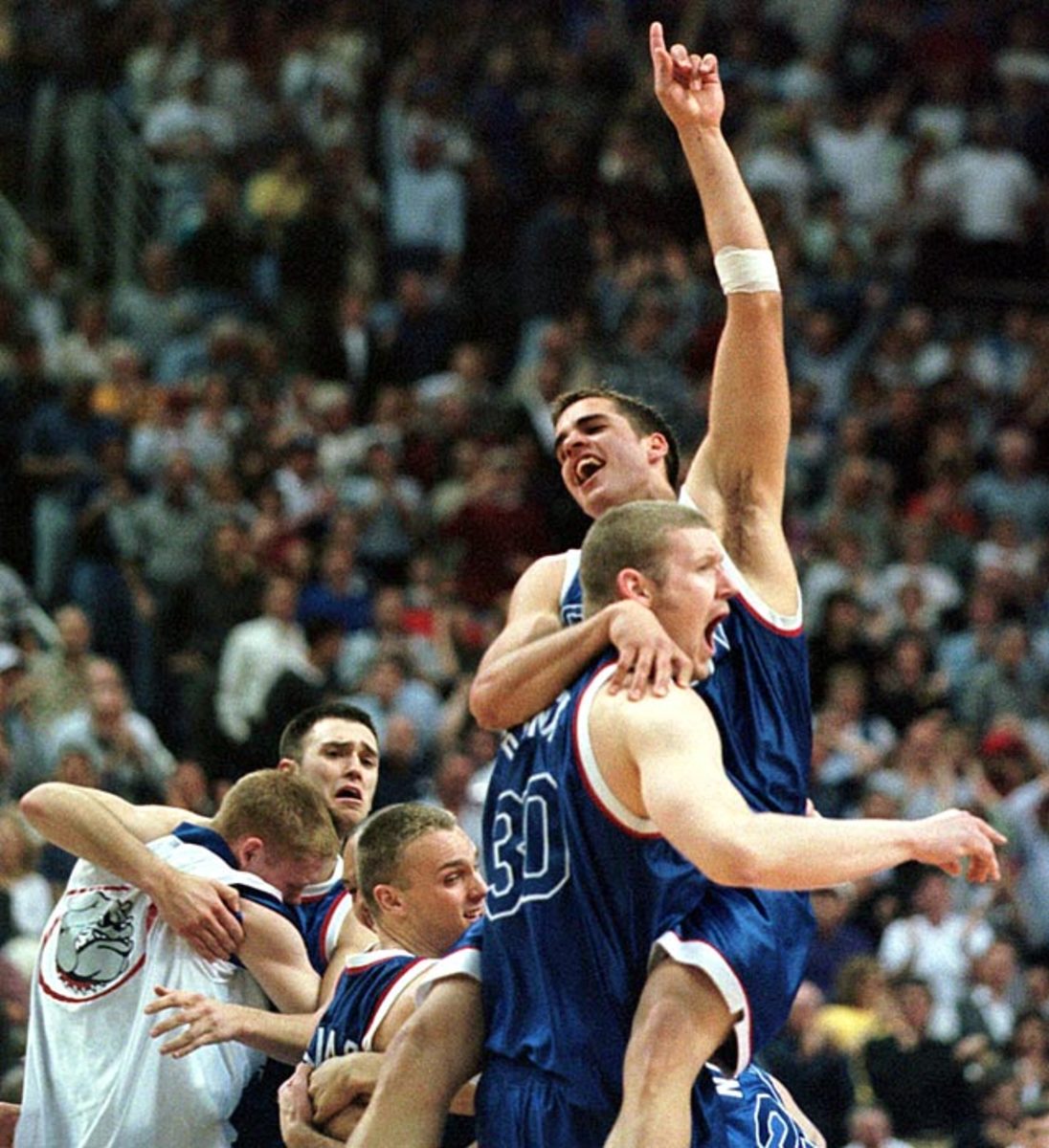
The Zags beat No. 7 seed Minnesota in the first round for their first-ever NCAA tournament win. They then took out No. 2 Stanford to reach the Sweet 16. But it was a victory against Florida that vaulted the tiny Jesuit school into the Elite Eight and national prominence.
Wichita State
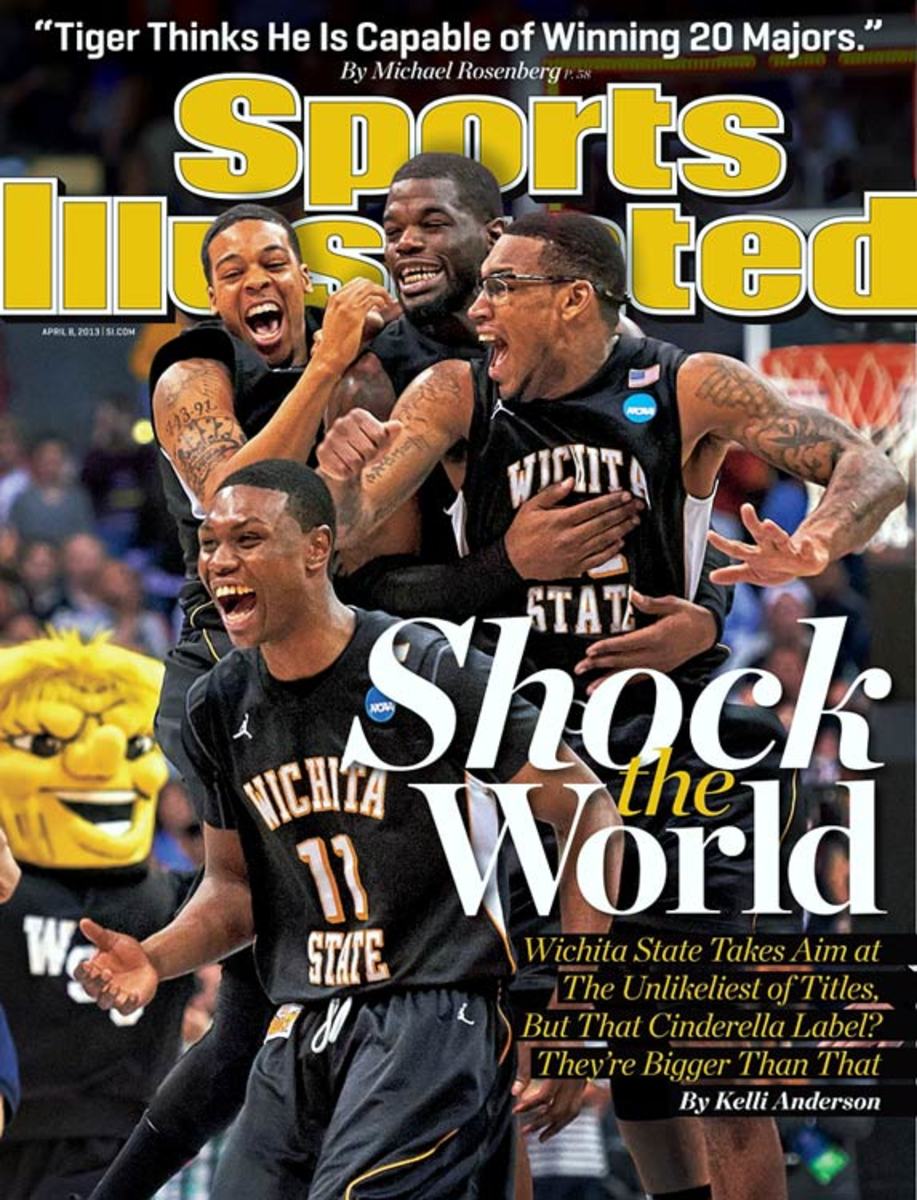
After winning their first three games by a combined 38 points, the Shockers entered the West Regional finals against No. 2 seed Ohio State as an underdog on paper only. Led by seniors Malcolm Armstead and Carl Hall, WSU played with swagger, emerging with a 70-66 victory and the school's first Final Four berth since 1965.
Villanova
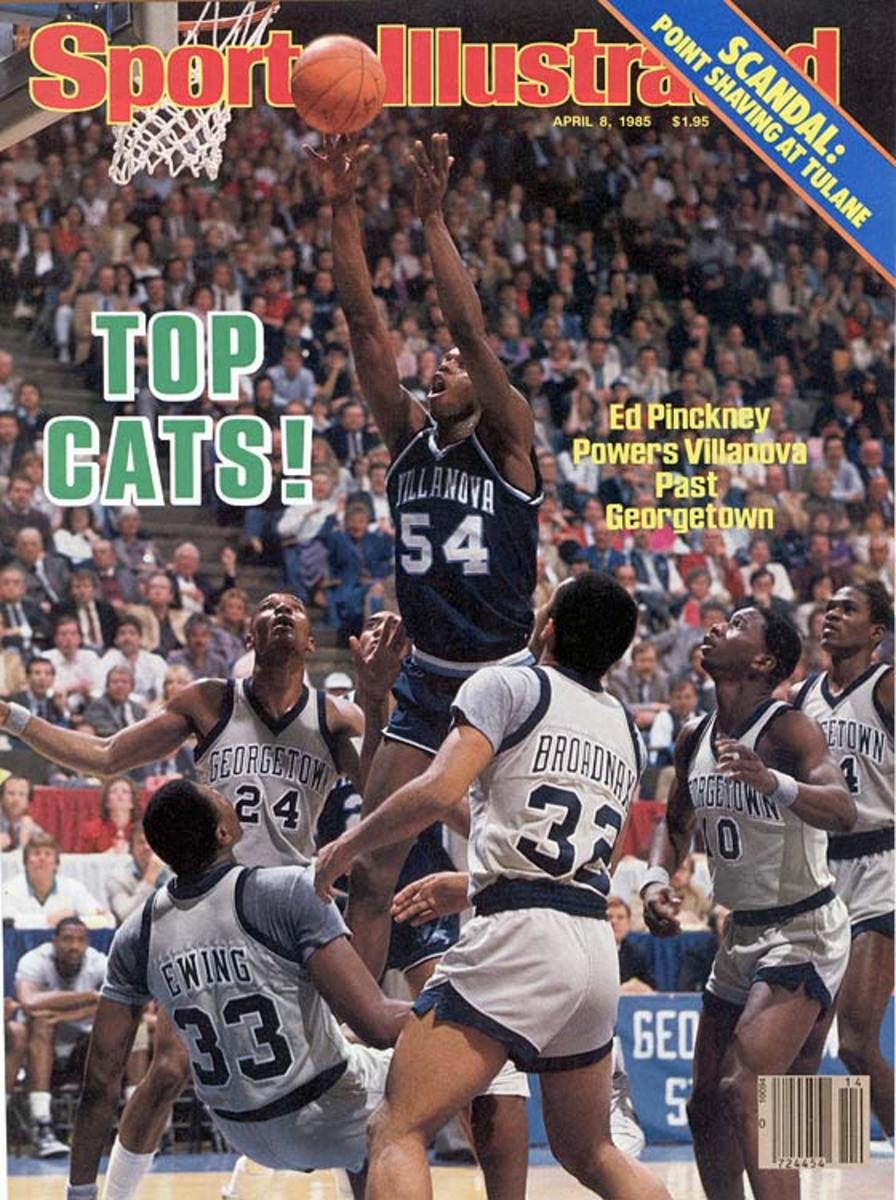
The 19-10 Wildcats just barely made the newly expanded field, and senior forward Ed Pinckney and Villanova were given virtually no chance against defending champion Georgetown. But thanks to lights-out shooting (78.6%, still a title-game record) and a matchup zone that confounded Hoyas center Patrick Ewing, the Wildcats became the lowest seed to win a title.
Virginia
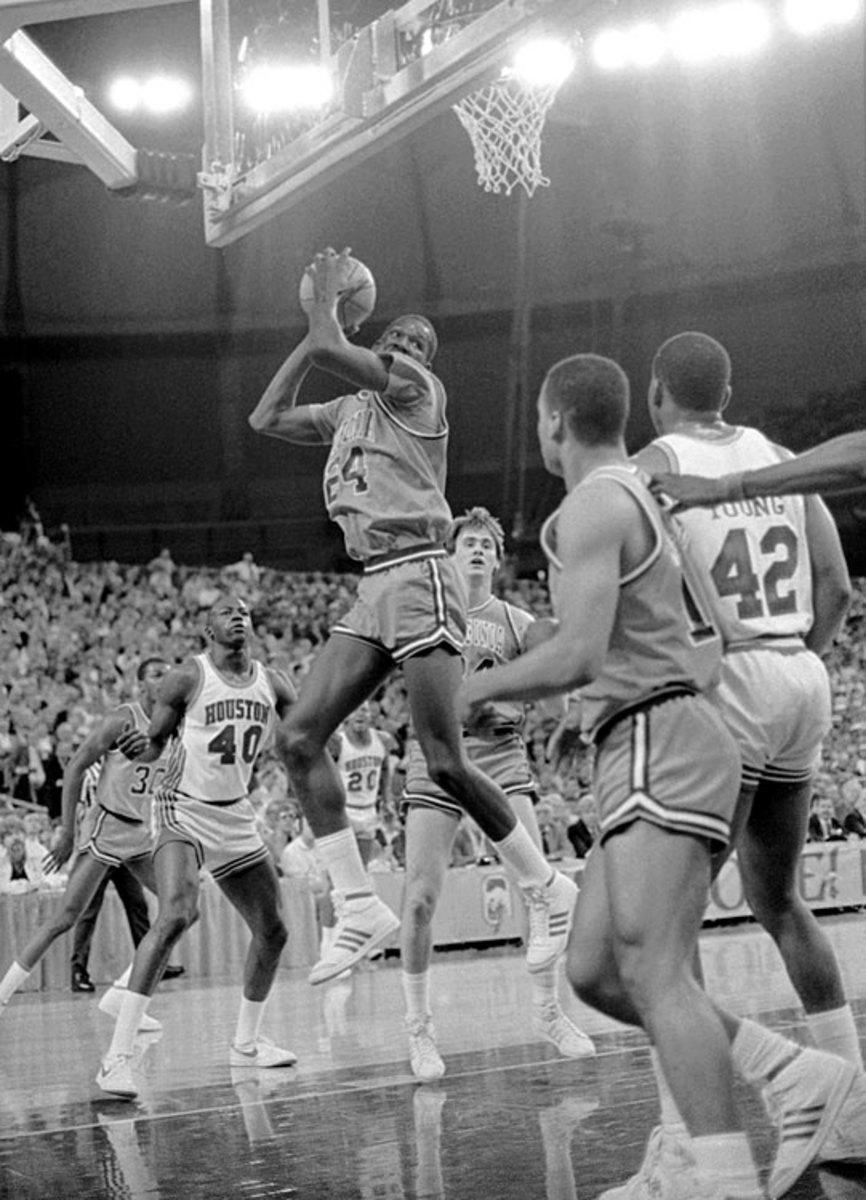
The Cavaliers clawed through the Eastern region, winning three of their four games by two points or less. Against No. 2 seed Arkansas, co-captain Rick Carlisle hit a 10-foot baseline jumper with four seconds remaining in OT to seal a 53-51 win. Olden Polynice (24) and Virginia took Hakeem Olajuwon and Houston to OT in the national semifinal before falling 49-47.
North Carolina State
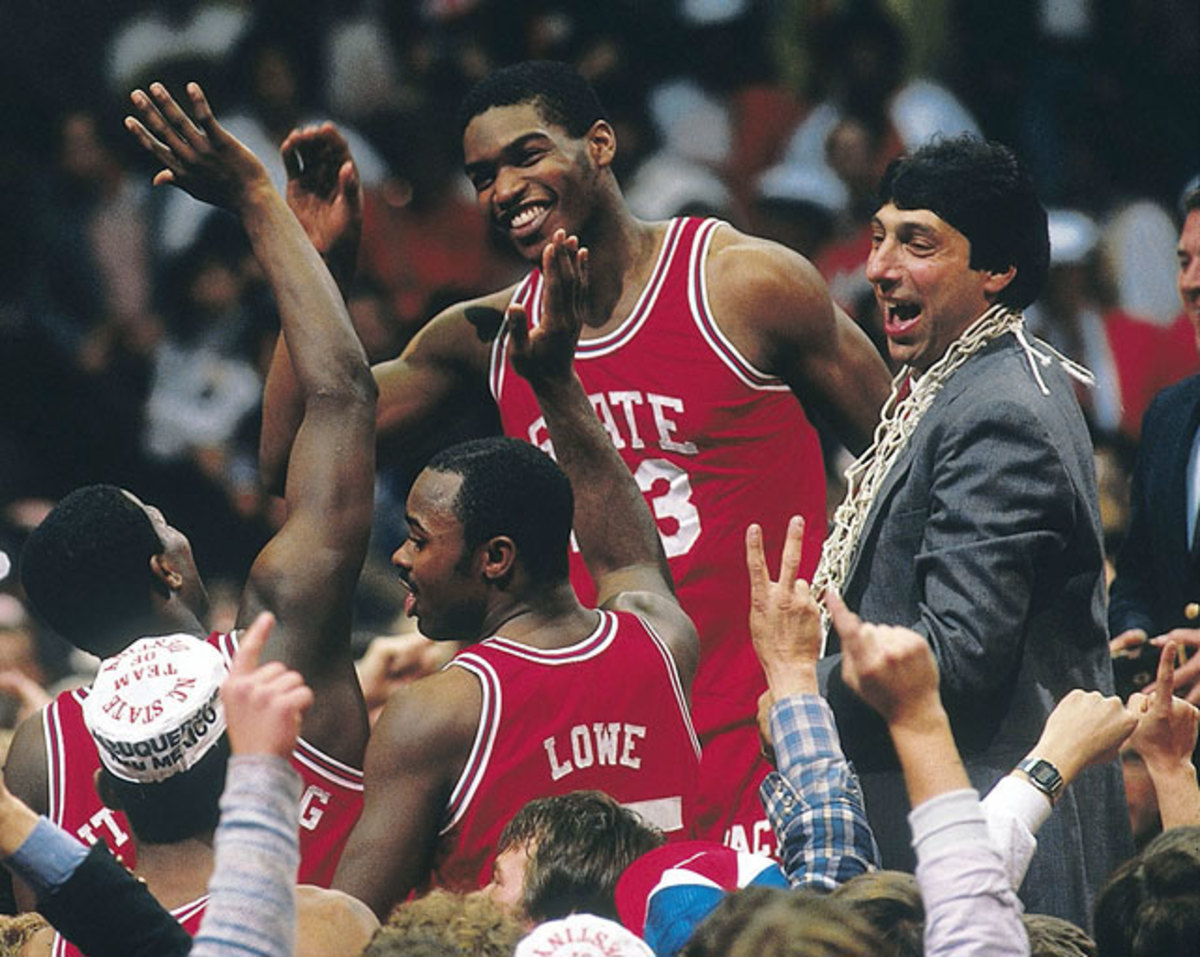
Lorenzo Charles began the season in coach Jim Valvano's doghouse for stealing two pizzas, but the sophomore forward finished on top of the world, after his buzzer-beating dunk defeated Houston 54-52. In upsetting the top-seeded Cougars, the Wolfpack became the first 10-loss team to win a title.
Butler
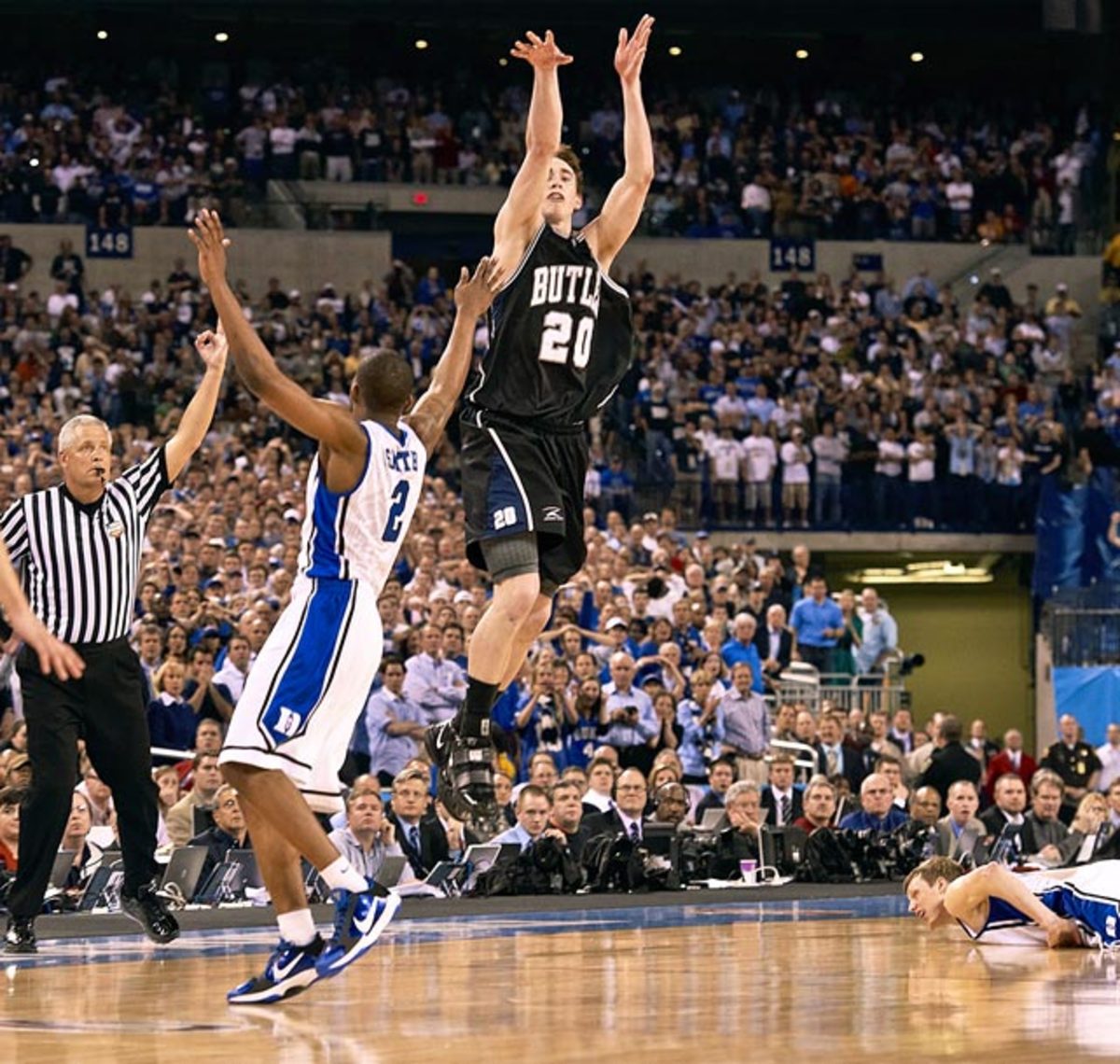
While the real-life Hoosiers narrative was just too easy, the comparison sold the Bulldogs short. The leading men behind one of the tournament's most memorable runs included a future NBA coach (Brad Stevens) and a lottery pick (6' 9" swingman Gordon Hayward) who more than belonged in the championship game -- even if Hayward's last-second half-court heave didn't drop for a true Hollywood ending.
Arizona
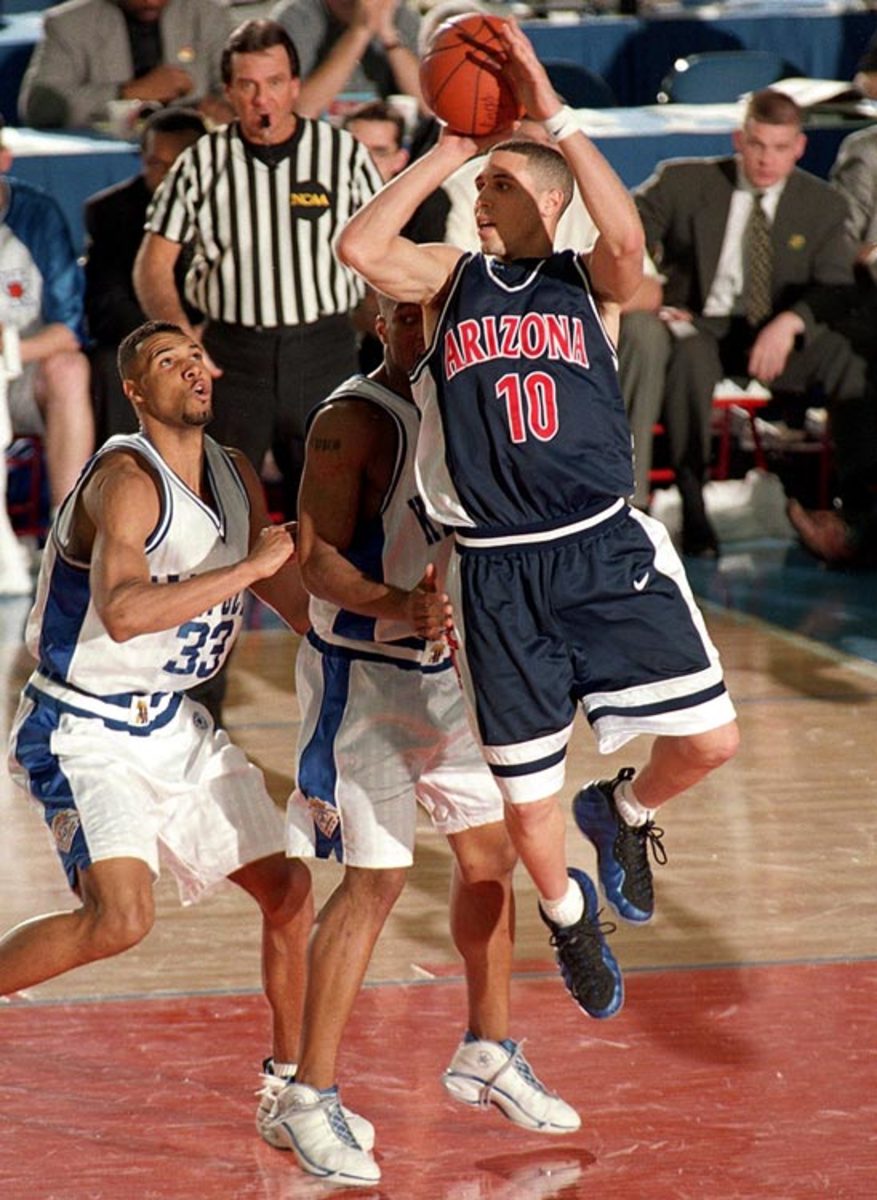
No fourth seed had ever won it all. Neither had any team from Arizona, or any squad coached by Lute Olson, whose Wildcats had a habit of first-round exits. But what did precedent matter to a team with four new starters, including freshman floor general Mike Bibby, who averaged 20.0 points, 6.0 rebounds and 4.3 assists in 'Zona's three wins over No. 1 seeds.
Florida
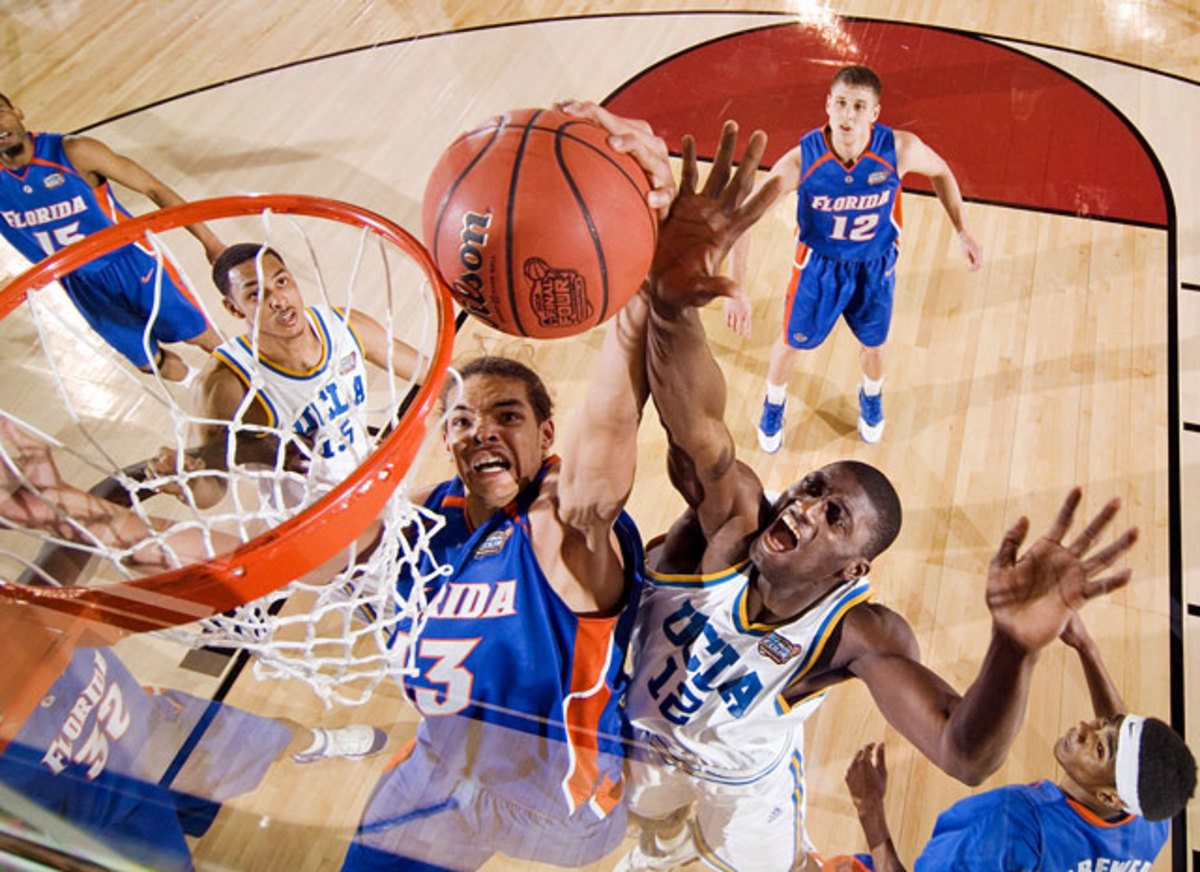
Sophomore starters Joakim Noah, Al Horford, Corey Brewer and Taurean Green and the Gators entered the season unranked. But by April, sparked by the charismatic Noah's tenacity (and his tournament-record six blocks in the the NCAA final against UCLA), the quartet of roommates had won the first of two NCAA titles.
Michigan State
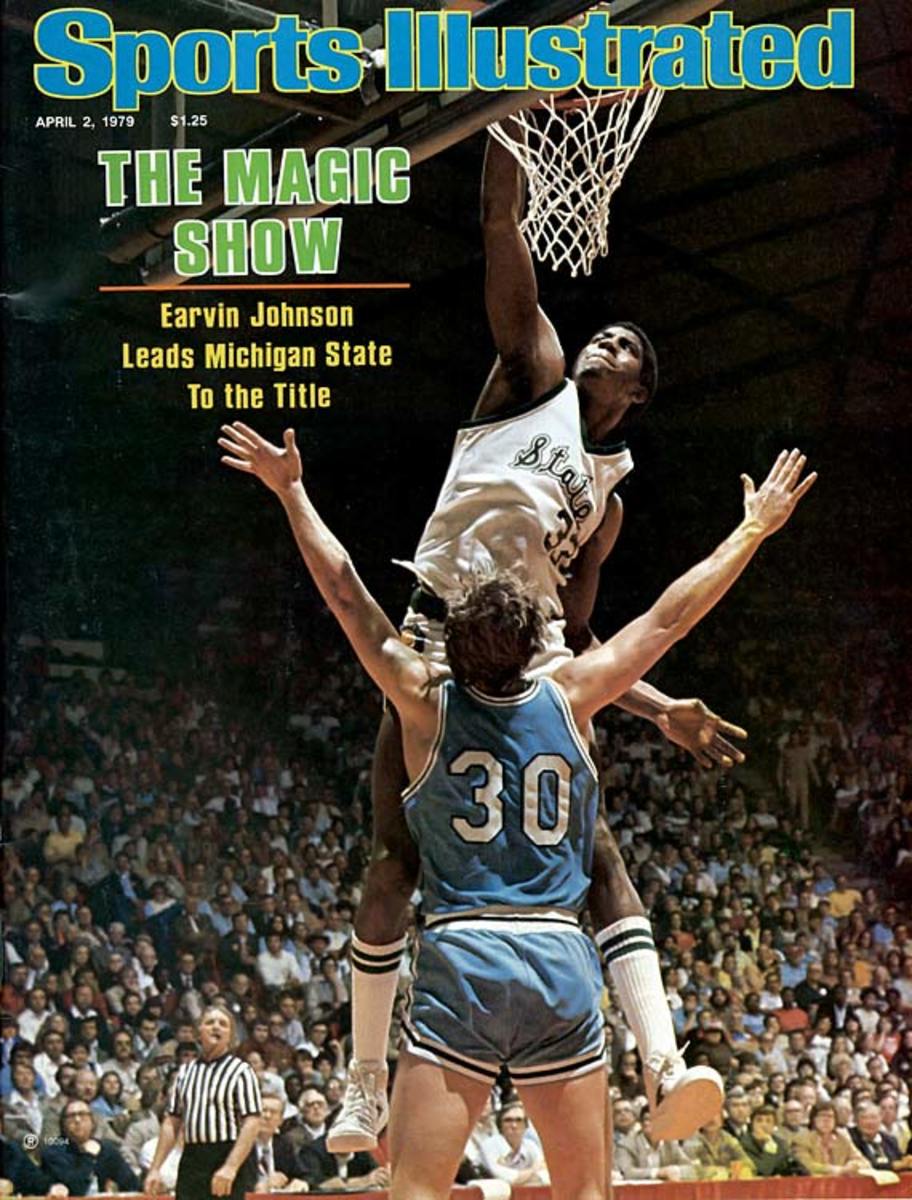
Sophomore point guard Magic Johnson made the Spartans fly, and his two triple doubles capped an otherworldly NCAA run that would earn Michigan State its first national title and Johnson a statue on campus. "Every member of the team is a hero," one Spartans fan gushed to SI that April, "but Magic is a legend."
Kentucky
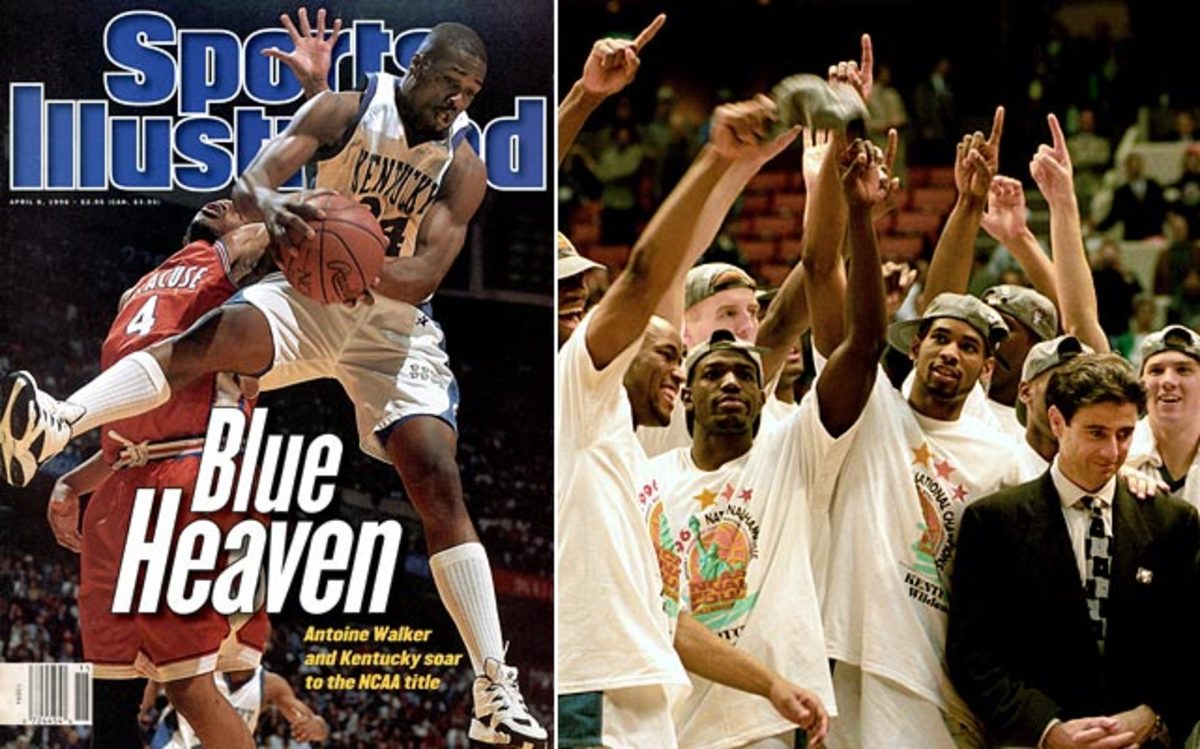
Its talent was so abundant (11 Wildcats would play in the NBA) that coach Rick Pitino dubbed his team the Professionals. Winning a title seemed preordained. After outscoring their first five tournament opponents by an average of 24.0 points, senior guard Tony Delk tied a championship-game record with seven threes against Syracuse, and sophomore forward Antoine Walker added 11 points and nine rebounds to help inspire the team's enduring moniker: the Untouchables.
